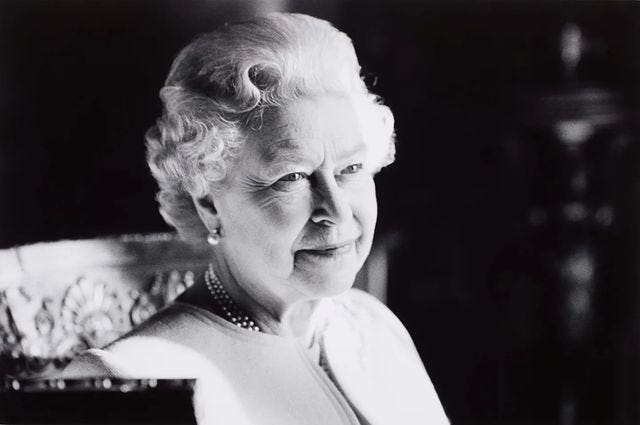The power of Queen Elizabeth's quiet dignity...and the challenges that await King Charles
Mark Borkowski was asked what lies ahead for the Royal Family...
It’s impossible to overestimate the role the Queen and the monarchy play in British daily life. The death of Queen Elizabeth II will have a profound impact on the nation's psyche. The Monarch has become an irreplaceable figure in Britain, central to its self-identity.
Queen Elizabeth has left the monarchy in a position of strength that would scarcely have been imaginable at certain points of her reign, with YouGov reporting 62% public support for the Royals in the run up to the Platinum Jubilee, and her passing provoking outpourings of public adoration and hagiographic media coverage.
The key challenge King Charles now faces is coming to terms with the incalculable personal contribution his mother made to that success.
Queen Elizabeth II was the ultimate public figurehead; a byword for quiet dignity and discreet humanity. She was a figure from another planet who managed with minimal fuss to engender empathy, and with whom people felt genuine personal affinity. Perhaps most importantly from a reputation standpoint, she never attracted any unassailable personal controversy.
Can the same thing really be said for King Charles or the rest of the Royals?
Listening to and reading tributes from members of the public, we are continuously confronted with a sentiment that lays bare the challenge for our new King. It goes roughly thus:
“Say what you like about the Royals, but I love the Queen.”
The Queen’s personal popularity and elegant avoidance of damaging controversy was crucial to the popularity of the institution, and will not be easily replicated by her successors.
Charles’ reputation is also currently strong. He has recovered from his affair, divorce and then the tragic death of his ex-wife, and he has shaken off accusations of attempting to exert political influence, to be seen as a modern leader, family man and a climate and conservation champion. It’s an image with cross-generational appeal- but challenges remain.
The first is the Commonwealth: as popular as Queen Elizabeth was, her reign-from-afar attracted ambivalence in other territories, and public and politicians alike may be looking at the example of the newly minted Republic of Barbados when a new figurehead – who does not loom nearly as large- is thrust upon them.
The second is Prince Andrew. Rumours abound that the disgraced Prince’s mother was his biggest protector; dare the new King risk tarnishing his reputation by associating publicly with his brother?
Then there’s Meghan and Harry; so scurrilous was the reporting of their fallout with the Royal Family that it is further testimony to the Queen’s powers of reputation management that she was able to maintain a distance from the most toxic allegations and rumours circulating around the story. King Charles attracted far more scrutiny for his role in the ostracisation of his younger son from his institution, and will continue to do so, particularly if the Sussexes become prominent and effective independent advocates of issues – such as the environment- in which he also has an interest.
Charles is a formidable character; but if he is ever to replicate the esteem in which his mother is held by the British public he needs to – subtly, graciously, and with a light touch- address all of these issues in a way that positions the Royal Family as a unified, purposeful, relevant public service institution, one that understands the modern world.


